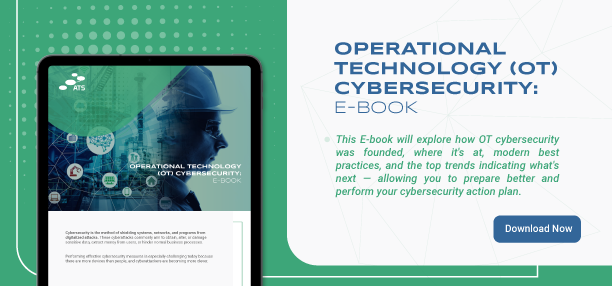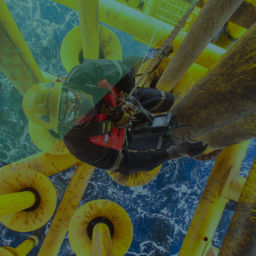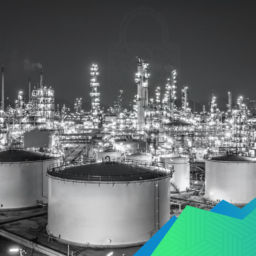OT Cyber Security by ATS for Oil and Gas Companies in the Middle East
Energy companies are evolving as prime targets for threat actors. The growing value of business data, the importance of fuel infrastructure, and the vulnerability of networked systems are a few primary reasons this industry is exposed to malicious hackers.
Oil and gas companies need to start investing in cyber security at the earliest. Otherwise, some of the nation’s most critical infrastructure would be left wide open to future cyber attacks.
Cyber threats facing the oil and gas industry
Due to ongoing digitization, oil and gas companies have become much more vulnerable to cyber attacks over the past few years. A significant shift from centralized systems to distributed management strategies has made managing cyber risks critical for oil and gas.
Many energy companies depend on vulnerable cyber security strategies such as air-gapped systems, which are systems that are not connected to the internet. Those air-gapped systems become easy targets for the threat actors.
Legacy systems that were never developed to be easily accessible are now connected to the internet for visibility and maintenance objectives, closing the IT-OT gap for the industry.
Internet-connected systems and smart devices, growing common in the energy industry, help oil and gas enterprises gather real-time data on-field operations, enhance maintenance, and improve vehicle fleet visibility. They also further grow the attack surface of security breaches.
These systems may also hold ample data about oil and gas apparatuses. A predictive maintenance tool that operates on data from IoT sensors may comprise details such as the type of metal plating a device uses to precisely anticipate machine wear, corrosion resistance, and conductivity.
All this data could be open to threat actors who successfully breach a company’s cyber security.It’s high time for energy companies to start investing in new technologies and digitization to secure critical infrastructure from security breaches.
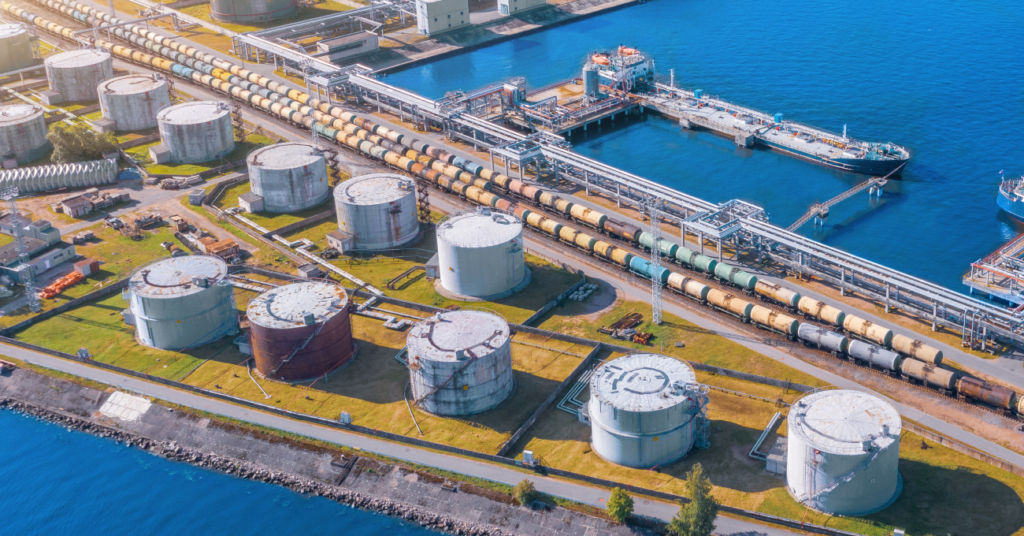
Cyber threat incidents in the oil and gas industry
A recent article from the World Economic Forum, discussed the cyber attack on the European oil refining hubs of Amsterdam-Rotterdam-Antwerp (ARA) which has significantly disturbed the loading and unloading of refined product cargoes in the middle of a continental energy concern.
The disruptions could see more adverse outcomes, potentially having societal and economical effects in European countries.
Further, these security breaches and disruptions occurred at the time of geopolitical emergency, which raises the chance of a more comprehensive unintentional political upsurge.
The incident also highlighted the kinetic impact to society-at-large of having an infrastructure breakdown due to a cyber attack. These attacks were recorded as one of the top three concerns of cyber experts in the 2022 Global Cyber Outlook report.
Another cyber attack on oil tanking in Germany, SEA-Invest in Belgium, and Evos in Holland impacted terminals with oil storage and transport worldwide.
A report anticipated that the attack was ransomware, where hackers scramble information and make computer systems nonfunctional until their demands are fulfilled. Ransomware attacks have increased 150% in the last year and are growing at a fast rate, with often inadequate conventional protection.
The latest European attack is not the first susceptibility exposed by cyber attacks on critical infrastructure. The US Colonial Pipeline ransomware attack in May 2021 is an example of an attack that directed the shutdown of 5,500 miles of pipeline holding around 45% of fuel stores in the East region.
Recently, cyber-attacks took place on a Florida water plant in February 2021 and a Solarwinds software provider in 2020, further highlighting that these attacks’ success relies on the flaws of defensive actions. There’s also an explicit requirement to protect legacy systems, poorly secured due to fast digitalization and their linkage to the internet, despite such connectivity not being anticipated in their original design.
Saudi Arabia’s flagship oil enterprise Saudi Aramco suffered from a cyber attack in 2012, which significantly affected the company’s internal functions for several months. However, due to the resiliency of its IT network and business functions, Aramco’s operations were not severely damaged.
The critical lesson is that no one is resistant, and companies cannot afford to overlook cyber security. Aramco, crucially, moved swiftly to modernize its operational procedures and deploy the latest tools to strengthen its critical infrastructure in the results of the incident.
The recent digital transformation across the energy industry discloses critical infrastructure to more advanced cyber threats and the complete oil and gas supply chain to cyber risks with possible future safety and environmental effects and disturbances to business functions.
The World Economic Forum, too, made several critical recommendations to cyber experts worldwide to reduce the cyber risks in the industry.
Those critical recommendations are:
- Establish an extensive cybersecurity governance model.
- Encourage security and resilience-by design culture.
- Improve the visibility of third parties’ risk posture and consider broader ecosystem impact.
- Execute holistic risk management and defense mechanisms with effective preventive, monitoring, response, and recovery capabilities.
- Prepare and test a resilience plan based on a list of predefined scenarios to reduce the impact of an attack.
- Amplify international public-private collaboration between all stakeholders in the industry.
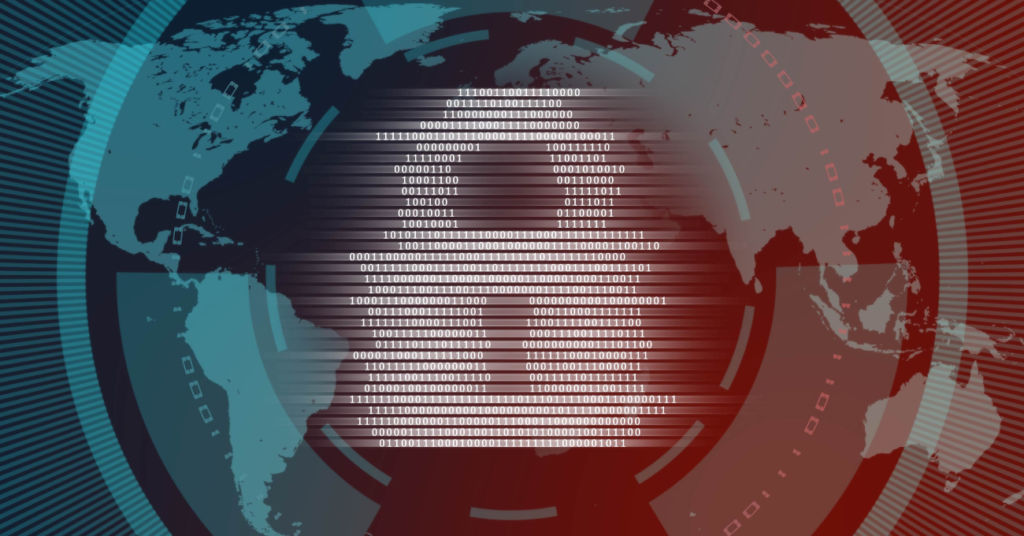
Major trends in cyber security in the energy industry
Security against these cyber threats is highly challenging in the face of rising attack surfaces, the expansion of offensive cyber capabilities, and flaws in international cooperation.
There are, therefore, three noteworthy trends meeting the industry:
- The evolution and convergence of the digital threat landscape between IT and OT (operational technology), with greater connectivity of the critical infrastructure and quick adoption of arising technologies to speed up the business model modification.
- The rise and difficulty of supply chain attacks in protecting global oil and gas functioning environments with the highly interconnected environment of partners, joint ventures, and suppliers where cyber security is siloed and responsibility shared across myriad priorities.
- In the cybersecurity outlook report, 80% of cyber experts highlighted that the rise of cyber-attacks in the industry risks business functions and public security.
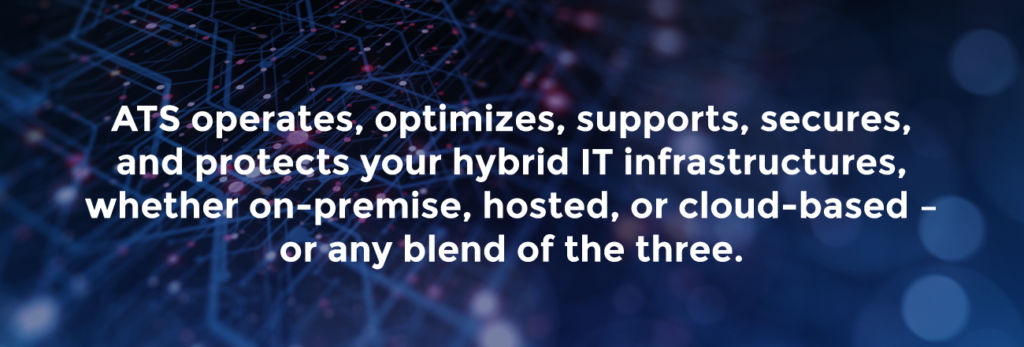
How do ATS security experts deliver cyber security to oil and gas firms?
With 18 years of experience in the cybersecurity industry, ATS integrates innovative technology, products, and services in a well-balanced synergy to enhance any oil and gas company aiming for top-notch performance and efficiency in today’s modern generation.
ATS acknowledges that energy companies have crucial needs to keep their plants operating 24 hours a day, seven days a week, even in potentially extreme cases. We also recognize that the energy plants sites must be connected faultlessly. ATS operates, optimizes, supports, secures, and protects your hybrid IT infrastructures, whether on-premise, hosted, or cloud-based – or any blend of the three. With ATS’s complete technological solutions, customers in the GCC countries and the Middle East benefit from avoiding high costs, deployment holds, and time-taking learning curves.
ATS constantly aims to enhance its services to help its customers secure their integrated IT-OT networks and fill OT cyber security gaps by implementing solutions to deliver the essential visibility, control, and behavioral analytics.



